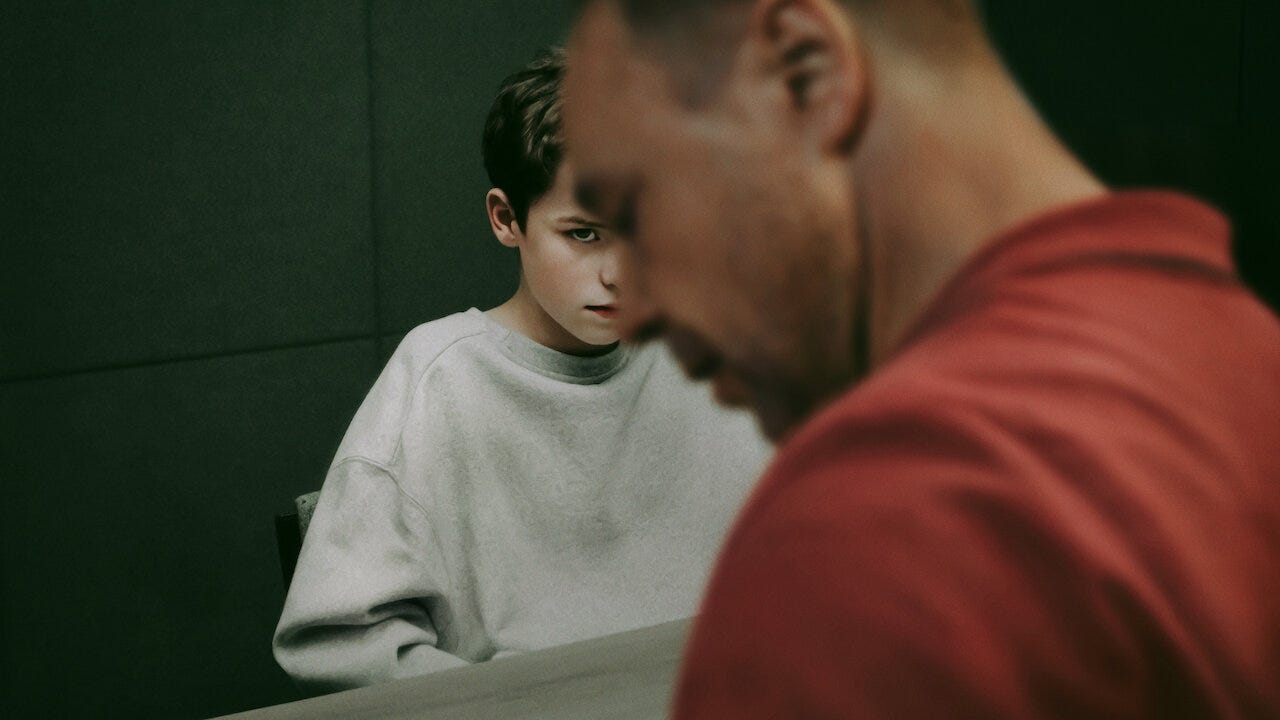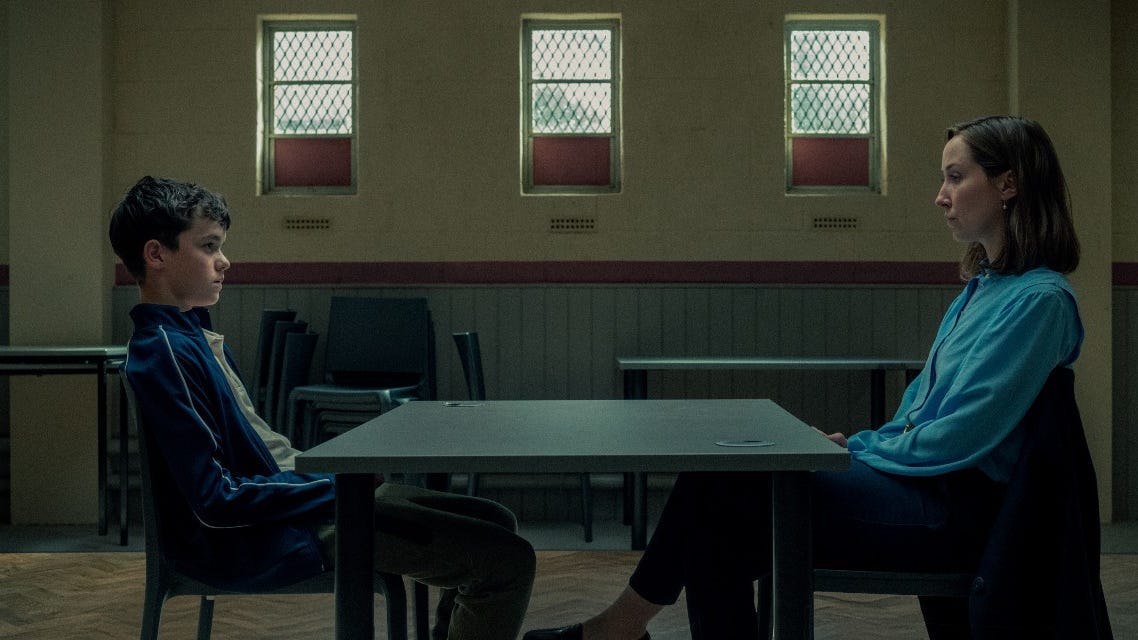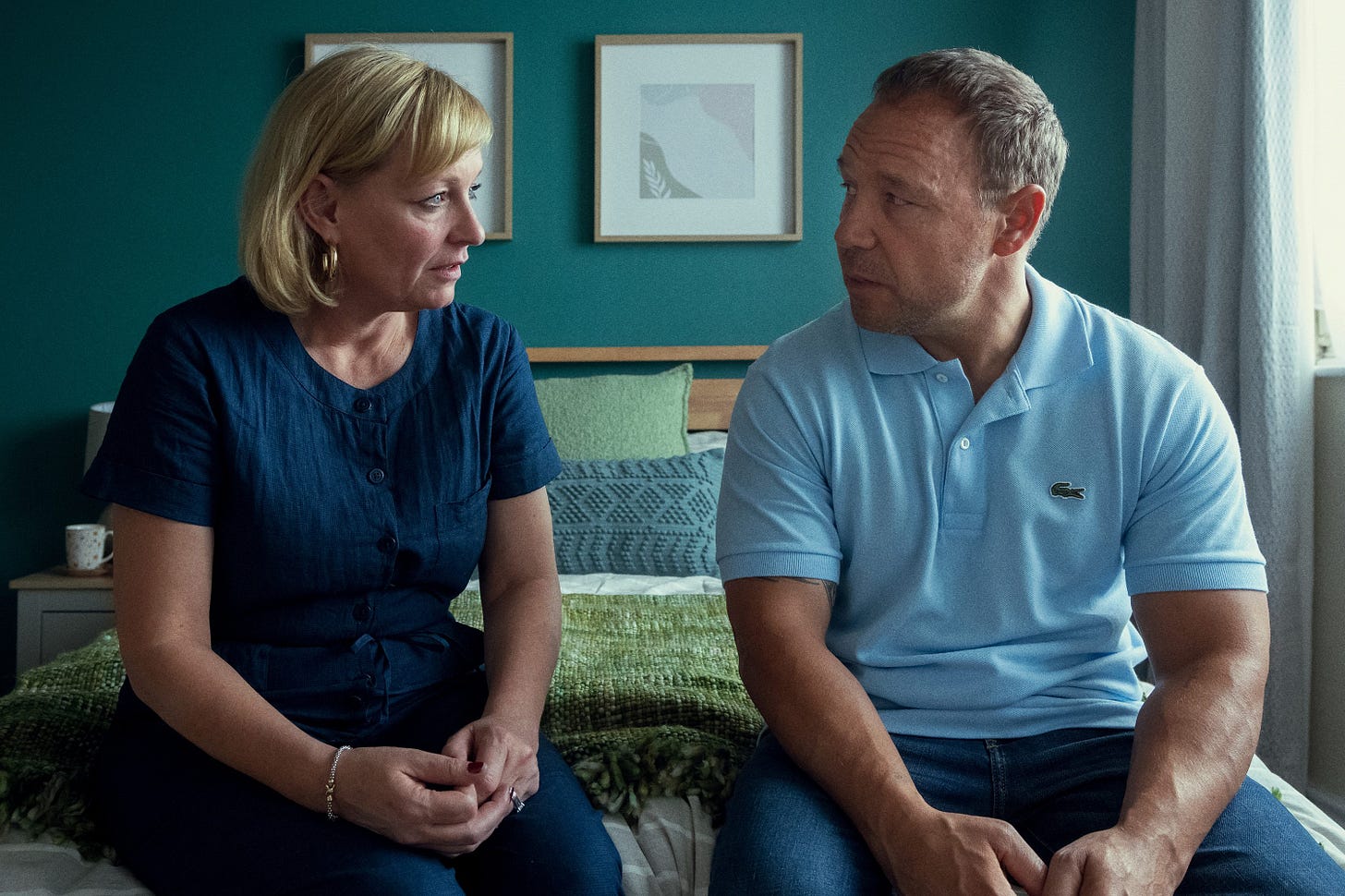The British limited series Adolescence, starring newcomer Owen Cooper, is a masterclass into the prepubescent male psyche. The show is filmed continuously in one-take across all four episodes—which at first admittedly, I believed was a gimmick. I mean we see this all the time now. But in this case, I argue it did its job in serving the narrative and it allowed for the show to feel like you've been dropped into a really, really bad Tuesday morning.
Aside from the outstanding cast, and crew—because god, I can only imagine the stress behind the scenes. The show lifts the curtain on the disturbing and increasingly relevant issue: young boys indulging in red pill/ incel content and thinking. Now if you are living under a rock, or possibly over the age of 35, and are unaware of what these terms mean.
The “red pill” is slang for a political ideology that's often misogynistic, homophobic, and racist. Meanwhile, "incels" (short for involuntary celibates) are typically young men who are unable to attract women romantically or sexually and have a hostile view towards women.
Incels usually start becoming radicalized around the ages of 16 —25. However, Adolescence uniquely delves into a younger audience of boys. In the digital age, social media plays a massive role in shaping young minds, and the series doesn’t shy away from its impact. One of the most striking moments in the show is its reference to Andrew Tate. A controversial figure arrested in 2022 on accusations of luring women to Romania and sexually exploiting them.
Social media has had a large impact on young boys. A study by Netsanity stated, “Boys will compare themselves to other boys on social media or even men that they see on TV and in print ads. Today, boys as young as 6-8 are already developing issues with their body image because of things that they have seen through social media, television, and even from offline experiences.”
This struggle is embodied in the character Jamie (Owen Cooper), who desperately craves validation from both his father and his psychologist, played by Erin Doherty—neither of whom provides it.
The show highlights how this simple neglect, combined with rising depression among youth, makes preadolescent boys particularly vulnerable to radicalization. According to the Department of Health and Human Services, about 3 million teens ages 12 to 17 had had at least one major depressive episode in 2015. About 30% of girls and 20% of boys – 6.3 million teens – have had an anxiety disorder, according to the National Institute of Mental Health. Furthermore, experts agree that this is likely on the low end since young people, especially boys, often don’t talk about depression and anxiety issues to parents or friends.
Again a study done in 2015. Before the global pandemic upended our lives, before we were confined to our homes, glued to our phones, and more susceptible to online influence. Now, Social media does have its good qualities. The sense of community is the biggest, but it can also isolate and make feelings of loneliness more intense and intensify harmful self-comparisons.
When these young boys find community online through these red pill influences and feel validated—these ideologies don’t just stay behind the screen—they spill into real life. I’ve witnessed it firsthand, whether online, through friends, or in the attitudes of their younger siblings. Adolescence serves as both a gripping drama but also as an urgent PSA, reminding us to be more mindful of a child’s social media access and presence. Left unchecked it can have damaging consequences to not only them but, for the people around them.






